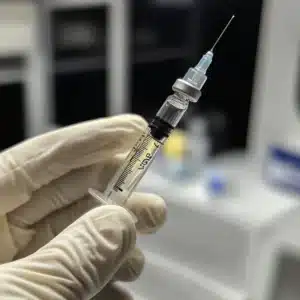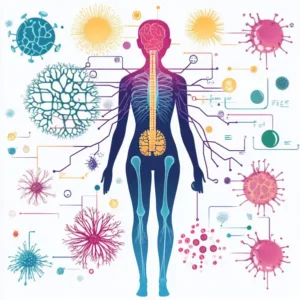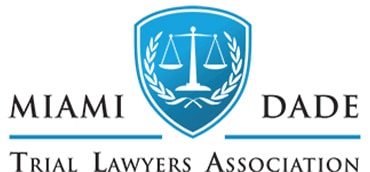Curious about the long-term side effects of the Gardasil HPV vaccine? While effective in preventing HPV, some report serious long-term side effects. This article explores those risks and the research behind them.
Key Takeaways
- Despite reports of nearly 10,000 serious adverse events, studies largely affirm the Gardasil vaccine’s overall safety, as supported by health authorities like the CDC and FDA.
- Common short-term side effects include localized reactions at the injection site, headaches, and nausea, while severe long-term side effects like chronic pain and autoimmune disorders have been reported, necessitating further research.
- Legal recourse, including Gardasil vaccine lawsuits, is available for those experiencing long-term side effects from the Gardasil vaccine, with the National Vaccine Injury Compensation Program offering compensation for medical expenses and lost wages.
Introduction to HPV Vaccines
The Human Papillomavirus (HPV) is a common virus that can cause various health problems, including cervical cancer and genital warts. HPV vaccination is a crucial step in preventing these diseases. In this section, we will discuss the importance of HPV vaccination, the different types of HPV vaccines available, and their safety and efficacy.
What is the Human Papillomavirus (HPV)?
The Human Papillomavirus (HPV) is a group of viruses that are extremely common worldwide. There are over 100 types of HPV, and they can be divided into two main categories: low-risk and high-risk. Low-risk HPV types can cause genital warts, while high-risk HPV types can cause cervical cancer and other serious health problems.
HPV is primarily transmitted through intimate skin-to-skin contact, making it one of the most common sexually transmitted infections. Most sexually active individuals will contract HPV at some point in their lives, often without knowing it, as the virus can be asymptomatic. Understanding the different types of HPV and their potential health impacts is essential for recognizing the importance of vaccination.
Importance of HPV Vaccination
HPV vaccination is essential in preventing HPV-related diseases. The Centers for Disease Control and Prevention (CDC) recommends HPV vaccination for everyone through age 26 years, if not vaccinated already. HPV vaccination can prevent up to 90% of cervical cancer cases and 70% of vaginal and vulvar cancer cases.
By preventing the most common and high-risk strains of HPV, the vaccine significantly reduces the incidence of these cancers. Additionally, the vaccine helps prevent other HPV-related conditions, such as genital warts and certain types of throat and anal cancers. The widespread adoption of HPV vaccination has the potential to drastically reduce the burden of these diseases on public health.
Gardasil Vaccine: A Type of HPV Vaccine
Gardasil is a type of HPV vaccine that protects against four types of HPV: HPV 6, HPV 11, HPV 16, and HPV 18. These types are responsible for the majority of HPV-related health issues, including cervical cancer and genital warts. Gardasil is administered in a series of three injections over a period of six months, ensuring comprehensive protection.
Gardasil 9 is a newer version of the vaccine that protects against nine types of HPV, offering even broader protection. This version includes the original four types plus five additional high-risk types, further enhancing its effectiveness in preventing HPV-related diseases. The administration schedule for Gardasil 9 is similar, typically involving two or three doses depending on the age at the start of vaccination.
Understanding the Long-Term Side Effects of Gardasil: What You Need to Know
Navigating the world of HPV vaccines can be daunting, especially with reports of long-term side effects. The Gardasil vaccine, crucial in preventing HPV infections, has seen nearly 10,000 serious adverse events reported. Moreover, 64,000 adverse events have been recorded in the Vaccine Adverse Event Reporting System (VAERS), with 7% classified as serious. Monitoring and reporting serious adverse events associated with human papillomavirus vaccination is crucial for understanding potential risks.
Despite these reports, studies generally affirm the overall safety of the Gardasil vaccine, with health authorities like the CDC and FDA documenting a reassuring safety profile. However, it’s essential to discuss any potential side effects with healthcare providers to make well-informed decisions.
Understanding these risks enables individuals to weigh the benefits of HPV vaccination against potential side effects, ensuring that the decision to vaccinate is made with complete awareness.
Overview of Gardasil Vaccine

The Gardasil vaccine, known formally as the quadrivalent human papillomavirus vaccine, plays a critical role in preventing HPV infections, which can lead to cervical cancer and other health issues. It’s designed to protect against the most common and high-risk strains of HPV.
Knowing the potential long-term side effects of the HPV vaccine injection helps in making informed decisions.
Gardasil has a favorable safety profile, supported by numerous studies and health authorities. During enhanced surveillance periods, the reported serious adverse event rate was 72.3 per 100,000 doses.
Ongoing monitoring and reporting are crucial to maintaining vaccine safety.
Patients should talk to healthcare providers about potential side effects to understand the risks and benefits better. Such discussions help address concerns and ensure individuals are fully informed about the vaccination process.
Though some reports highlight persistent issues post-vaccination, evidence supports the vaccine’s overall safety. Staying informed and vigilant about any adverse effects is important for everyone who receives the vaccine.
Gardasil Vaccine Safety and Efficacy
The Gardasil vaccine has been extensively studied for its safety and efficacy. Numerous clinical trials and post-marketing surveillance studies have demonstrated that the vaccine is both safe and effective in preventing HPV-related diseases. These studies have consistently shown that the benefits of vaccination far outweigh the risks.
Health authorities, including the CDC and the FDA, continue to monitor the safety of the Gardasil vaccine through systems like the Vaccine Adverse Event Reporting System (VAERS). This ongoing vigilance ensures that any potential issues are promptly identified and addressed, maintaining public confidence in the vaccine’s safety profile.
Gardasil 9 and Manufacturer Insert
Gardasil 9 is a type of HPV vaccine that protects against nine types of HPV. The vaccine is administered in a series of two injections over a period of six months. The manufacturer insert provides detailed information on the vaccine’s safety and efficacy, as well as its potential side effects.
The manufacturer insert is a critical resource for both healthcare providers and patients. It includes comprehensive data from clinical trials, information on the vaccine’s ingredients, and guidance on managing potential side effects. By reviewing the manufacturer insert, individuals can gain a deeper understanding of the vaccine and make informed decisions about their health.
In conclusion, the Gardasil vaccine, including Gardasil 9, plays a vital role in preventing HPV-related diseases. Its safety and efficacy are well-documented, and ongoing monitoring ensures that it remains a reliable tool in the fight against HPV.
Contact us today for your free & confidential case review. Our team will help you get the compensation that you deserve.
Common Short-Term Side Effects
Common short-term side effects of the Gardasil vaccine include pain, swelling, and redness at the injection site. These injection site reactions are typically mild and resolve on their own within a few days. Soreness at the injection site is also frequently reported, although many individuals experience no side effects at all.
Beyond localized reactions, some recipients report experiencing headaches, nausea, and dizziness. These symptoms are generally mild and transient, but they can be a source of discomfort immediately following vaccination.
Monitoring individuals for fainting after vaccination is recommended to ensure immediate care if needed. Awareness of these common side effects can alleviate concerns and prepare individuals for what to expect after vaccination.
Chronic Pain Post-Gardasil Vaccination
Chronic pain is a more severe side effect that some individuals experience after receiving the Gardasil vaccine. Reports indicate that this pain can persist for many months, significantly impacting quality of life. This issue has prompted increased scrutiny and research into potential links between the vaccine and chronic pain.
Media attention has raised awareness about chronic pain cases linked to Gardasil, leading to more reported instances. The pain experienced can be debilitating, lasting for months or even years.
Individuals suffering from these long-term side effects often face substantial medical expenses and emotional distress. While substantial evidence linking the HPV vaccine to long-term complications is lacking, these reports underscore the need for further research and support.
Fatigue and Long-Term Tiredness
Persistent fatigue is another reported side effect following Gardasil vaccination. This fatigue can be severe enough to impair normal daily activities, with 17% of serious adverse event reports involving such impairments. Chronic pain and fatigue can significantly restrict physical abilities. Consequently, this affects the overall quality of life.
Chronic Fatigue Syndrome (CFS) is a recognized term in the context of HPV vaccination adverse events. Symptoms associated with CFS include:
- Fatigue
- Malaise
- Sleep disorders
- Impaired work ability
In addition to physical limitations, persistent fatigue can lead to mental health issues such as frustration, anxiety, and depression. Recognizing and addressing these symptoms promptly is essential for providing appropriate support and care.
Autoimmune Disorders Associated with Gardasil

Concerns about autoimmune disorders potentially linked to the Gardasil vaccine have been raised, although evidence supporting this connection is lacking. Nonetheless, some autoimmune disorders, such as Guillain-Barré Syndrome and systemic lupus erythematosus, have been reported in association with the HPV vaccine.
Specific reports include cases of Guillain-Barré syndrome (GBS) and chronic inflammatory demyelinating polyneuropathy (CIDP) following Gardasil vaccination. These conditions are serious and can significantly impact an individual’s health and quality of life.
Plaintiffs in ongoing lawsuits allege to have suffered serious autoimmune and neurological issues after receiving the Gardasil vaccine.
The median age of females reporting autoimmune disease post-vaccination was 15 years, with symptoms appearing from one week to three months after vaccination.
Adverse events considered of special interest following HPV vaccination include autoimmune diseases. Ongoing research and vigilant monitoring are necessary to address these concerns and ensure HPV vaccine safety.
Postural Orthostatic Tachycardia Syndrome (POTS)
Postural Orthostatic Tachycardia Syndrome (POTS) is one of the main side effects reported by some Gardasil vaccine recipients. Symptoms of POTS include orthostatic intolerance, tachycardia, palpitations, and syncope, with onset reported from 6 months to over a year post-vaccination.
The diagnosis of POTS can take an average of nearly six years, significantly impacting daily functioning. This delay in diagnosis can lead to high unemployment rates and substantial financial burdens. Reports indicate that 85% of POTS cases are in females, highlighting a gender disparity.
Complex Regional Pain Syndrome (CRPS)
Complex Regional Pain Syndrome (CRPS) can occur as a long-term side effect following the Gardasil vaccine. This condition is characterized by severe, chronic pain, often described as burning, and typically occurs in the limbs. Symptoms of CRPS include swelling, color changes in the skin, increased sensitivity to pain, and motor function impairment. The median age of individuals who reported cases of CRPS post-vaccination is 14 years, indicating that young individuals can be affected.
A pediatrician diagnosed CRPS following the Gardasil vaccine in one case, emphasizing the importance of prompt recognition and diagnosis. The condition often arises following trauma or injury, with over 90% of cases developing in such contexts.
Reproductive Health Concerns
Concerns about the HPV vaccine causing infertility have been widely circulated, yet studies have not found credible evidence to support this association. In fact, HPV vaccination may help protect fertility in women with a history of sexually transmitted infections.
Data from 2014 to 2017 indicated only three cases of primary ovarian insufficiency out of nearly 29 million doses of Gardasil 9 administered, lacking sufficient evidence for a medical diagnosis. Research analyzing nearly 200,000 women also showed no link between HPV vaccination and increased primary ovarian insufficiency risk.
These findings should reassure those concerned about reproductive health impacts, emphasizing the importance of preventing cervical cancer and other HPV-related issues.
Legal Recourse for Gardasil Side Effects
For individuals suffering from long-term side effects of the Gardasil vaccine, legal recourse is available. The National Vaccine Injury Compensation Program (VICP) provides a no-fault alternative for individuals injured by vaccines, allowing them to file a petition for compensation. This program can cover expenses such as medical costs and lost wages.
There are also ongoing lawsuits alleging that the Gardasil vaccine may result in severe side effects, including seizures and immune system complications. Concerns include allegations of negligence and failure to warn consumers about potential side effects.
Merck, Gardasil’s manufacturer, has faced legal challenges regarding its marketing and safety. Legal options, including the Gardasil vaccine lawsuit, can help address the financial burdens caused by long-term side effects, providing some relief to affected individuals.
How to Report Adverse Events
Reporting adverse events is crucial for monitoring vaccine safety. The Vaccine Adverse Event Reporting System (VAERS) allows patients and caregivers to report adverse events. Healthcare providers are mandated to report serious adverse events and vaccine administration errors to VAERS.
VAERS monitors potential vaccine safety problems and ensures timely assessment and response. Providers are encouraged to report any significant adverse events post-vaccination, even without certainty of causation, to maintain a robust safety monitoring system.
Frequently Asked Questions
What are the most common short-term side effects of the Gardasil vaccine?
The most common short-term side effects of the Gardasil vaccine include pain, swelling, and redness at the injection site, alongside headaches, nausea, and dizziness. It is important to be aware of these potential reactions following vaccination.
Can the Gardasil vaccine cause chronic pain?
Chronic pain can occur following Gardasil vaccination, with some cases reported to last for months or years. This is a recognized possibility, albeit not common.
Are there any autoimmune disorders linked to the Gardasil vaccine?
There have been reports of autoimmune disorders, including Guillain-Barré Syndrome and systemic lupus erythematosus, associated with the Gardasil vaccine, but the evidence linking them is limited. Therefore, monitoring and further research are essential in understanding any potential connections.
Is there a risk of infertility from the Gardasil vaccine?
There is no credible evidence linking the Gardasil vaccine to infertility; rather, it may actually help protect fertility in women with a history of sexually transmitted infections. Therefore, the risk of infertility from the Gardasil vaccine is not supported by research.
How can I report an adverse event after Gardasil vaccination?
To report an adverse event after Gardasil vaccination, you should submit your report to the Vaccine Adverse Event Reporting System (VAERS), which accepts submissions from patients, caregivers, and healthcare providers. This process is crucial for monitoring vaccine safety.
Last updated Monday, October 28th, 2024












